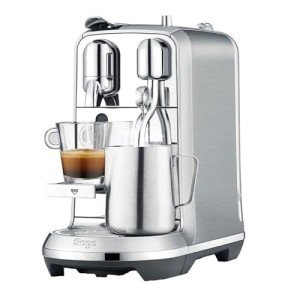The Most Valuable Advice You Can Receive About Home Use Espresso Machines
Home Use Espresso Machines: A Comprehensive Guide
Espresso machines have ended up being a staple in lots of families as coffee enthusiasts seek to reproduce café-quality brews in the convenience of their kitchen areas. The rise in appeal has resulted in a diverse market filled with different models, functions, and costs. This post aims to offer an informative summary of home use espresso machines, assisting readers browse their choices effectively.
Comprehending Espresso Machines
Espresso machines work by forcing warm water through finely-ground coffee under high pressure, leading to a concentrated coffee beverage referred to as espresso. There are a number of kinds of espresso machines classified based on their brewing techniques and level of automation. The most common types consist of:
Manual Espresso Machines: These require the user to manage the pressure and water circulation, allowing for a more hands-on coffee-making experience.
Semi-Automatic Espresso Machines: These offer automatic control over water pressure, while the user by hand grinds and tamps the coffee.
Automatic Espresso Machines: With the push of a button, these machines immediately control the flow of water, making it easier to brew espresso with constant results.
Super-Automatic Espresso Machines: These all-in-one machines manage grinding, tampering, developing, and even milk frothing, making them perfect for users trying to find benefit.
Capsule or Pod Machines: These use pre-packaged coffee pods to create espresso with minimal effort, but they restrict choice in brewing methods and flavors.
Table: Comparison of Espresso Machine Types
Type
Control Level
Ease of Use
Cleaning Level
Suitable For
Manual
User-controlled
Moderate
High
Coffee purists
Semi-Automatic
Partial automation
Moderate
Moderate
Home baristas
Automatic
Totally automated
Easy
Low
Hectic individuals
Super-Automatic
Totally automated
Really simple
Very low
Convenience applicants
Capsule/Pod
Totally automated
Really easy
Extremely low
Casual drinkers
Secret Features to Consider
When picking a home use espresso machine, it's necessary to consider different features that can substantially impact the quality of espresso and user experience.
Pressure: Look for machines that supply at least 9 bars of pressure, as this is considered ideal for developing espresso.
Boiler Systems: Single vs. dual boiler systems identify temperature stability and the capability to brew espresso and steam milk simultaneously.
Grinder: Integrated mills permit for freshly ground coffee, which boosts taste. Think about machines with adjustable grind settings.
Milk Frother: For those who delight in coffees and lattes, a built-in steam wand or automatic frother is vital.
Size and Design: Consider your kitchen area and visual preferences. Machines come in various sizes, from compact to big setups.
Price: Home espresso machines can vary from a couple of hundred to a number of thousand dollars, so it's crucial to develop a budget before exploring choices.
Pros and Cons of Home Use Espresso Machines
Pros
Cons
Benefit of developing coffee at home
Preliminary financial investment can be high
Quality of espresso is typically exceptional
Requires some skill, specifically with manual machines
Capability to experiment with flavors
Upkeep and cleansing can be labor-intensive
Can conserve money in the long run
Not all machines will match every coffee choice
Maintenance and Cleaning Tips
Preserving an espresso machine is vital for extending its life and guaranteeing consistent brew quality. Here are some helpful pointers:
Regular Descaling: Minerals from water can develop up in the machine. Descale every 1-3 months, depending upon water firmness.
Daily Cleaning: Rinse portafilters, baskets, and steam wands after each use to prevent coffee oils from building residue.
Use Filtered Water: This can help lower mineral accumulation and enhance the taste of coffee.
Change Gaskets and Seals: These components might break in time and should be changed to maintain pressure and performance.
Check out the Manual: Each machine has specific care directions; following these will guarantee durability.
FAQs About Home Use Espresso Machines
**Q1: What is the best budget espresso machine?The best budget espresso machine frequently depends on specific needs, but models like the DeLonghi EC155 or the Breville Bambino are popular amongst users for offering great value. Q2: How long do home espresso machines normally last?With www.coffeee.uk , home espresso machines can last anywhere from 5 to 15 years, depending upon the quality of the machine and frequency of use. Q3: Can I make cappuccinos and lattes with any espresso machine?While most espresso machines can make cappuccinos and lattes, having a trusted
steam wand or frother is essential for achieving the right milk texture.
Q4: Are super-automatic machines worth the investment?For those who focus on benefit and fast brewing, super-automatic machines can be worth the investment, though they may do not have some customizability in brew strength and flavor. Q5: What types of coffee beans are best for espresso?While personal choice plays a role, beans identified as” espresso “blends are generally roasted darker, creating abundant flavors and a velvety texture when brewed.
Investing in a home espresso machine can transform the daily coffee regimen into something unique, elevating home brews to café quality. By comprehending the different types of machines, key features to consider, maintenance requirements, and weighing the
advantages and disadvantages, consumers can make informed decisions that suit their private preferences. As the espresso culture continues to grow, no matter the option, every brew can be a delicious experience waiting to be savored.  **
**